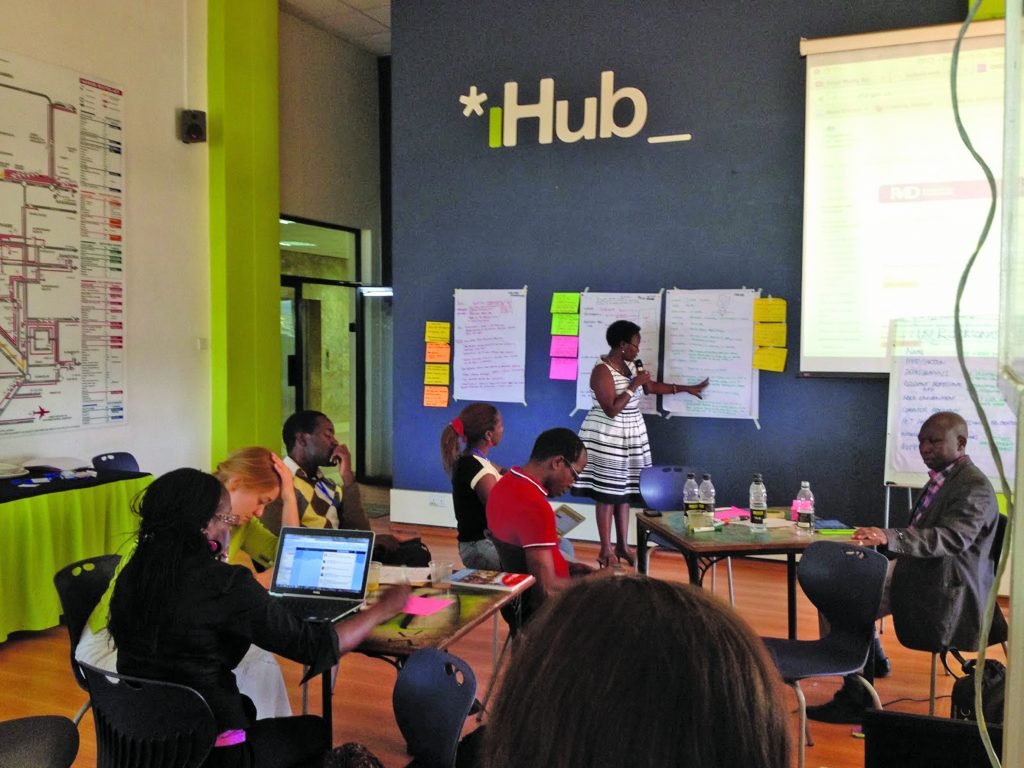BY VICTOR ADAR
In what seemed like changing the narrative, a number of innovators more recently converged at a Nairobi hotel to demystify the role that innovation hubs will play to accelerate startups. The aim was to bring all stakeholders in the entrepreneurship support ecosystem together in order to provide an avenue through which they would dialogue and debate on different matters that affect the entrepreneurship ecosystem, while growing the innovation space.
It was part of the partnership between the Association of Startup and SME Enablers Kenya (ASSEK) and Make IT Africa tech entrepreneurship initiative that aims at jointly developing a conducive entrepreneurship ecosystem in Kenya.
Anne Mutahi who is the SME advisor at the Office of the President encouraged stakeholders in the entrepreneurship ecosystem to leverage on their strengths.
“Recognition of startups is important as it makes it possible for the Government to better engage and support the relevant players in the entrepreneurship ecosystem,” she said.
This is an addition to many voices that continue to shout about creating opportunities for significant and sustained socio economic development, and comes at the back of the Startup Bill which is expected to empower small players.
Managing director of VIFFA Consult, a Kenyan based management consultancy firm, Victor Agolla said that the StartUp Bill will foster a culture of innovation and entrepreneurship while providing a framework for linkage of start-ups with private investors, financial institutions, , research institutions and such other institutions at the county, national and international level.
“The Startup Bill will achieve three important things; recognition of startups that will allow for budgetary allocation and mainstream into the national data collection framework led by KNBS, incentivising of startups and startup investors to spur significant growth and triple helix collaboration among government, academia and private sector for continued development of entrepreneurship,” said Ogolla.
Although SMEs form the backbone of the Kenyan economy through provision of jobs to over 30% of the population, and consequently contributing 33% to GDP as per data from the Kenya National Bureau of Statistics 2016, their mortality rate is still high. But the good news is that Kenya is a top innovation country in Africa, Kenyan startups command significant share of venture capital flow into Africa – ICT continues to be a significant enabler of other economic sectors especially services sector as well as supporting physical infrastructure such as national fibre backbone and KONZA Technopolis.
The trouble of innovation space is simply how it will be regulated. In fact, there is a lot of experimentation on how innovation can be used as a driver to grow the economy. There is nothing wrong from collecting tax from the current crop of online investors. The Government should give way to those who earn through digital platforms. How will the youth who for a long time have been selling shoes, dresses, electronics, cars or houses through Facebook pages and WhatsApp be taxed?
Kenya is currently ranked 77th in the global innovation scene and there is a strategic need to direct support from government, academia and local innovators to drive the next phase of entrepreneurship development.
Owing to digitalization, which has been spurred by the Covid-19 pandemic, SMEs have had to look within for local solutions. Perhaps creating regulations that will accommodate the shift is what will make people in the innovative space to rise up to the occasion. To make it work, digital collaborations aimed at unlocking more value, while ensuring that tiny players get the support that they require must not be ignored. Good policies too must be put in place.
Era of cybers has faded away thanks to smartphones, learning and access to information too is no longer a monopoly. How policies will shape the landscape while supporting the development and growth of start-ups is the most important thing. In the past, innovation was being driven by enthusiasts, which lead to the growth of innovation hubs where tech savvy individuals were able to access resources and networks. Today it is about identifying gaps, and creating synergies
That is why more than a year ago, ASSEK was launched to offer a platform for dialogues – already 1,000 companies have signed up. The mission of the association is to be the voice and support of startup enablers such as incubators, accelerators, co-working spaces and innovation centres, and their clients in Kenya and beyond, through the advancement of entrepreneurship as a key driver of economic and social development.


